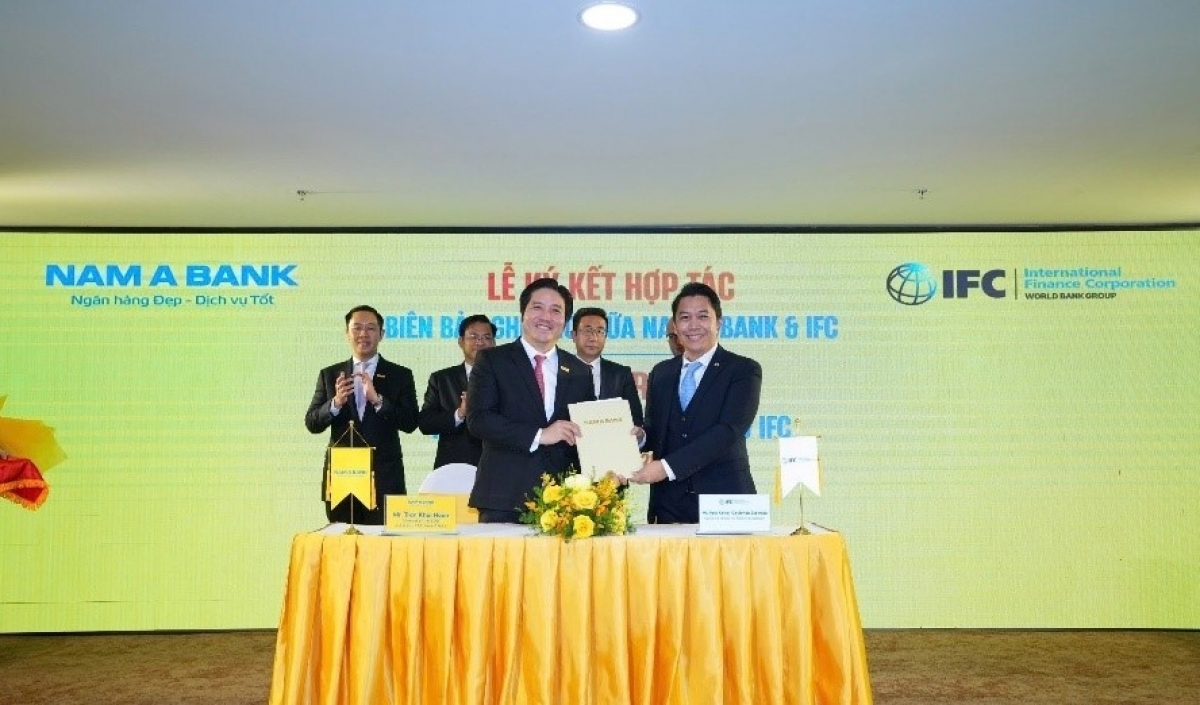INTERNATIONAL INVESTMENT
AND PORTAL
 Nguyen Trung Kien, director of KPMG Private Enterprise According to the report, Vietnam's 10 leading emerging giants span over a few different industries. Can you provide an overview of these fast-growing businesses and are there any notable similarities or differences between those in the region and in Vietnam?
Nguyen Trung Kien, director of KPMG Private Enterprise According to the report, Vietnam's 10 leading emerging giants span over a few different industries. Can you provide an overview of these fast-growing businesses and are there any notable similarities or differences between those in the region and in Vietnam?
If you look at the list of top 10 emerging giants, you would easily see a very equal representation of industries, such as crypto, e-commerce, health, education, fintech, and real estate. Despite their sector differences, all take advantage of the booming digital economy and seek to enhance the quality of life. This is applicable to not only Vietnam but across the region.
This fact speaks vocally of such specific characters of a fast-growing economy such as Vietnam. That is, we have a young population that was born during a digital era making them technologically and digitally inclined. Together with a healthily growing middle class and rising disposable income, these factors in turn create a population of consumers that is becoming more informed about their choices of products and services.
Hence, the combination of these traits creates opportunities for businesses that enable digital platforms that facilitate a more efficient consumer-led economy where businesses can quickly respond to market trends, and consumers have access to hyper-localised, curated portfolios of products and services.
The digital revolution helps eliminate inefficiencies related to both operating businesses on a geographical basis in terms of market reach, access to funding, and availability of relevant business tools and capabilities. In essence, technologically speaking, across the region startups can enjoy the same opportunities and share the same challenges.
In terms of investment, the report credited the surge in 2021 to two reasons, the first being investors’ eagerness to find new opportunities and the second being companies’ need to reinvest and expand post-pandemic. Do you expect this investment flow to continue once the economy restabilises?If we look into the report and other statistics, it shows that investment level, even during the last two years of lockdown, has been increasing at a healthy rate.
At the moment, we are on track to surpass the investment level of the pre-COVID period, namely 2019-2020. In Vietnam, we have seen a 75 per cent increase in the number of startups compared to before the pandemic. Despite the fact that Vietnam attracts a small proportion of startup investment compared to elsewhere in the region, given its strong economy and relatively stable political environment, we expect to see a healthy level of investment flow to continue and increase over the coming years.
One thing I want to note is that up to now foreign investment via different vehicles accounts for a large part of the total investment pool. But I expect that to change as more local investors will become more interested and proactive in participating in funding local startups.
Specifically for startups in Vietnam, what are some challenges and opportunities?The playing ground for local startups has been indeed becoming more levelled, and fairer. There are platforms that allow startups to vocalise their ideas, visions, and plans to investors both locally and from abroad to help them with funding and coaching.
At the same time, we have seen the government has been proactive in bringing the startup discussion onto the national stage, creating regulatory frameworks such as tax incentives and national funding specific to startups. All these are happening and are very encouraging for entrepreneurs.
However, it is worth noting that regardless of how cutting edge and ambitious their ideas, visions and plans are, they should not overlook fundamental business principles such as good planning and governance to ensure long-term business viability.
Lastly, as economies are merging and market boundaries are blurring, startups have to also ensure that their ideas, plans and visions are well aligned with the broader global trends to stay relevant. Perhaps most notably, their business models, products and services all will have to be created and adapted to ensure long-term benefits to the environment, community, and society at large.
What are some of the biggest trends for startup growth in the coming years, and what can be done better in terms of government support to create a more favourable startup growth environment?Given the specific demographical characteristics of Vietnam that I mentioned, we will continue to see strong growth in consumer-driven industries such as health, fintech, insurance, and education. There will be an increased level of hyper-localisation of products and services which consequently requires startups to adapt their business models to ever-changing customer requirements.
Vietnam is becoming one of the region’s next manufacturing powerhouses. It is fair then to expect that there will be strong demand for startups making products and services that help manufacturers to revolutionise their operations, whether it is about product R&D technologies, process automation, AI-enabled supply chain management, or AI-driven demand forecasting.
In terms of government support, perhaps we can start looking at how the government can create industry-specific policies and supportive frameworks for startups that focus on creating products and services that solve industry-specific challenges. Here, we are essentially seeing the government playing a role not only as the facilitator but also as a procurer of solutions.
How is KPMG supporting these emerging businesses?At the firm level, KPMG stays very closely connected with the startup community, both here in Vietnam and globally, by providing products and services in advisory and consulting. We also facilitate collaborations with government agencies and the business community to provide insights, data, mentoring and coaching such as workshops that help strengthen fundamental business skills and technical capabilities for these young companies. We also help connect these startups with the investors' network should there be requirements for funding.
In addition, there is KPMG Private Enterprise, a segment created by KPMG that is designed and tasked specifically to service the requirements of these emerging businesses, such as those in the Top 10 list.
KPMG Private Enterprise is an integrated global network of family advisors, resources, and alliances. Collectively, we represent a single point of contact for all these businesses' requirements. We understand the unique dynamics of running startup businesses that evolve over time, and we share startups’ entrepreneurial mindsets.
Our trusted advisors are dedicated to working with them and being part of their journey, no matter what stage the businesses are in the undertaking, whether it is planning, priming for growth, or exit.
Read more about the newest report by KPMG & HSBC Emerging Giants in Asia Pacific here



















